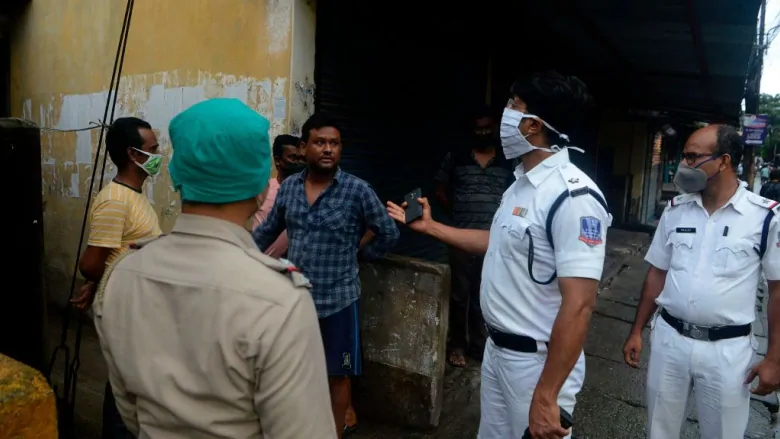Billionaire philanthropist Bill Gates has called for COVID-19 drugs and an eventual vaccine to be made available to countries and people that need them most, not to the “highest bidder,” saying relying on market forces would prolong the deadly pandemic.

The latest:
- Bill Gates calls for distribution of COVID-19 meds to people who need them.
- COVID-19 cases have doubled worldwide over the last six weeks.
- How the pandemic caught Canada with its stockpiles down.
- U.K. pilot, symbol of Vietnam’s pandemic success, to return home.
- India breaks its record for a daily increase in cases.
- Why it may be harder to catch COVID-19 from surfaces than we first thought.
- Florida reports its 2nd sharpest daily rise in cases as Disney theme parks prepare to open.
Billionaire philanthropist Bill Gates has called for COVID-19 drugs and an eventual vaccine to be made available to countries and people that need them most, not to the “highest bidder,” saying relying on market forces would prolong the deadly pandemic.
“If we just let drugs and vaccines go to the highest bidder, instead of to the people and the places where they are most needed, we’ll have a longer, more unjust, deadlier pandemic,” Gates, a founder of Microsoft, said in a video released on Saturday during a virtual COVID-19 conference organized by the International AIDS Society.
“We need leaders to make these hard decisions about distributing based on equity, not just on market-driven factors.”
With hundreds of vaccine projects under way and governments in Europe and the United States investing billions of dollars in research, trials and manufacturing, there is concern that richer nations could scoop up promising medicines against the novel coronavirus, leaving developing countries empty-handed.
The European Commission and the World Health Organization have warned of an unhealthy competition in the scramble for a medicine seen as key to saving lives and resolving economic chaos sowed by the virus. Some officials in Washington have indicated they would seek to prioritize U.S residents.
Only aggressive action combined with “national unity and global solidarity” can turn the COVID-19 pandemic around, the head of the World Health Organization said after announcing the number of cases has more than doubled in the past six weeks.
WATCH | How did the coronavirus become a human infection?
A World Health Organization animal expert is part of a new mission to China to trace the coronavirus’s path from animal to people. 0:23
WHO director general Tedros Adhanom Ghebreyesus was speaking Friday as the world recorded more than 12 million known cases of the respiratory illness, with more than 558,000 deaths. The UN agency also reported a record increase in cases for a single day of 228,102.
By early Saturday afternoon, the total confirmed cases around the world rose to 12,554,059, while 561,038 people have died of the disease, according to Johns Hopkins University in Baltimore. In the U.S. alone, there have been nearly 3.2 million cases, with 134,000 deaths.
WATCH | How to stay safe as bars and clubs begin to reopen:
Bars and clubs are beginning to reopen across the country. Dr. Lisa Barrett, an infectious disease specialist, explains things you can do to stay safe if you choose to go out. Thumbnail credit: Paul Chiasson/The Canadian Press 8:04
Infections have been reported in more than 210 countries and territories since the first cases were identified in China last December.
The WHO chief said it’s still possible to bring the outbreaks under control. He cited countries such as Italy, Spain and South Korea as examples of countries with success stories after sharp spikes in numbers.
India, meanwhile, has added more than 20,000 cases of coronavirus on a daily basis for a week now — but on Friday, that number rose to a record 27,114.
“This is a worrying development. And with the current trends, projections are that by the end of the coming week, India will have more than one million cases,” freelance reporter Neha Poonia told CBC News on Saturday.
With more than 820,000 cases, India is the third worst-hit country, after the U.S. and Brazil. A surge in infections went from 600,000 to the current level in just nine days, the country’s Health Ministry said.
Eight of India’s 28 states, including the worst-hit Maharashtra, Tamil Nadu and New Delhi, account for nearly 90 per cent of all infections.
WATCH | Ontario union calls for more PPE as mask shortage sidelines paramedics:
Jason Fraser, chair

